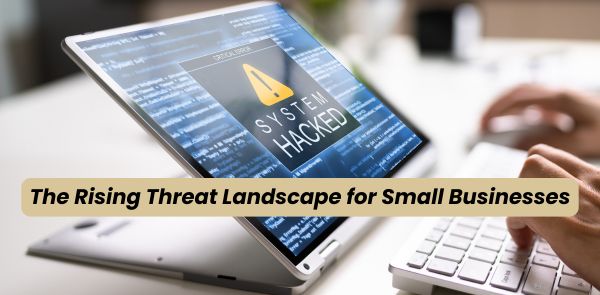
1. Misconceptions About Being “Too Small to Hack”
Many small business owners believe their limited resources and scale make them unattractive to cybercriminals. However, hackers view small businesses as easy targets because:
- They often lack robust cybersecurity measures.
- They handle sensitive customer data, including payment information.
- They can serve as gateways to larger organizations through supply chain vulnerabilities.
2. Limited Resources and Expertise
Small businesses typically operate with tight budgets and minimal IT staff. This makes it challenging to:
- Keep software and systems updated.
- Conduct regular security audits.
- Invest in advanced cybersecurity tools.
3. Increased Reliance on Digital Platforms
From e-commerce websites to cloud-based services, small businesses are adopting digital tools to stay competitive. While these platforms enhance efficiency, they also expand the attack surface for cybercriminals.
4. The Financial and Reputational Impact of Cyberattacks
A successful cyberattack can have devastating consequences for small businesses:
- Financial Loss: The average cost of a data breach for small businesses is $108,000.
- Reputation Damage: Customers lose trust when their data is compromised.
- Operational Disruption: Ransomware attacks can halt business operations for days or weeks.
Common Cyber Threats Facing Small Businesses
1. Phishing Attacks
Hackers use deceptive emails or messages to trick employees into revealing sensitive information, such as login credentials or financial details.
2. Ransomware
This malicious software encrypts a company’s data and demands a ransom for its release. Small businesses are particularly vulnerable due to insufficient backup systems.
3. Malware
Malware infiltrates systems to steal data, spy on activities, or damage devices. It can spread through infected downloads, compromised websites, or phishing emails.
4. Insider Threats
Whether intentional or accidental, employees can become conduits for cyberattacks by mishandling sensitive information or falling victim to scams.
5. Supply Chain Attacks
Hackers target small businesses as entry points to larger organizations within their supply chain.
Why Hackers Love Targeting Small Businesses
1. Easier to Breach
Small businesses often operate without:
- Firewalls and endpoint protection.
- Multi-factor authentication.
- Regular employee cybersecurity training.
2. Valuable Data
Despite their size, small businesses handle critical data, including:
- Customer payment information.
- Personally identifiable information (PII).
- Intellectual property.
3. Lower Detection Rates
Small businesses are less likely to have monitoring systems in place, allowing breaches to go unnoticed for longer periods.
Actionable Steps to Protect Your Small Business
Invest in Cybersecurity expert partners
1. Use antivirus software and firewalls
- Implement endpoint protection on all devices.
- Regularly update and patch your systems.
2. Use Strong Passwords and Multi-Factor Authentication (MFA)
- Require employees to use complex, unique passwords.
- Enable MFA for all accounts, adding an extra layer of security.
3. Regularly Back Up Your Data
- Automated tools are used to back up critical data daily.
- Store backups securely, both offline and in the cloud.
4. Secure Your Wi-Fi Networks
- Use WPA3 encryption for your Wi-Fi.
- Create separate networks for employees and guests.
5. Conduct Regular Security Audits
- Identify vulnerabilities in your systems.
- Implement recommended fixes immediately.
6. Leverage Cybersecurity Insurance
- Protect your business against financial losses caused by cyberattacks.
- Review policy terms to ensure comprehensive coverage.
Building a Cybersecurity Culture
Creating a culture of cybersecurity awareness is critical for long-term protection. Encourage:
- Open communication about potential threats.
- Continuous learning and adaptation to emerging risks.
- Accountability among employees for maintaining secure practices.
When to Seek Professional Help
If managing cybersecurity in-house feels overwhelming, consider partnering with:
- Managed Security Service Providers (MSSPs): They offer end-to-end cybersecurity solutions tailored to small businesses.
- Consultants: Get expert advice to set up and optimize your security infrastructure.
- Cybersecurity Training Firms: Educate your staff on best practices and emerging threats.
Small but Mighty—Defend Your Business
Small businesses may be attractive targets for hackers, but they don’t have to remain defenseless. By investing in the right tools, fostering a culture of cybersecurity awareness, and staying proactive about potential threats, you can significantly reduce your risk of becoming a victim.
Remember, cybersecurity isn’t a one-time investment—it’s an ongoing process. Don’t let your size determine your vulnerability. Take action today to protect your business and its future.
